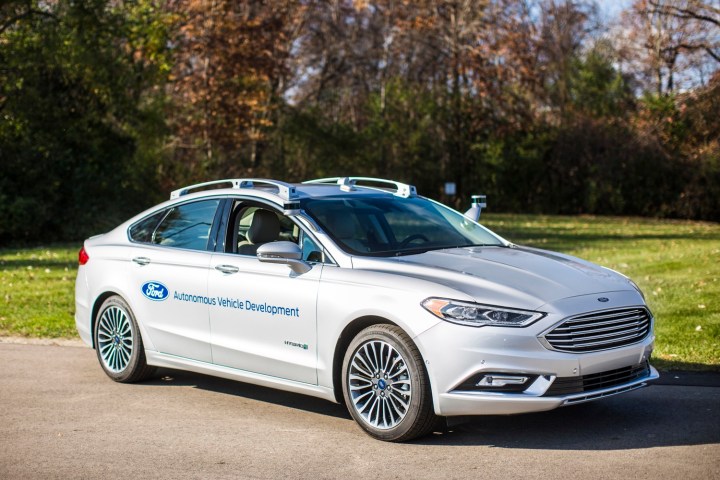
Ford is getting serious about its self-driving car unit, and to that end, has spun out its autonomous car division into its very own company. Ford Autonomous Vehicles LLC now encompasses “all aspects of its self-driving vehicle business operations, to accelerate its AV business and capitalize on market opportunities,” the Dearborn-based automaker noted in a release. This company will include not only Ford’s self-driving systems integration, but also its autonomous vehicle research and advanced engineering units, AV transportation-as-a-service network development, user experience, business strategy, and business development teams.
Over the next five years, Ford intends to invest $4 billion in self-driving efforts, and is looking to more closely align its self-driving platform with its mobility solutions team. In this way, the company hopes, Ford will be better prepared as a business that is capable of serving both a pre- and post-self-driving car world.
“Ford has made tremendous progress across the self-driving value chain – from technology development to business model innovation to user experience,” said Jim Hackett, president and CEO of Ford Motor Company. “Now is the right time to consolidate our autonomous driving platform into one team to best position the business for the opportunities ahead.”
The company’s decision to create an independent autonomous car unit comes not long after chief rival General Motors made the same move. In late May, the Detroit-based firm created its own Cruise Automation unit with many of the same goals. GM plans to put a self-driving car with neither a steering wheel nor pedals into production in 2019, and has claimed that it will be the first car company to produce self-driving cars en masse. Of course, the veracity of this claim has yet to be determined.
Ford’s new Autonomous Vehicles LLC will be headed by current vice president Sherif Marakby, and will be headquartered at Ford’s new Corktown campus in Detroit. The company is also open to external funding, as the team has said it is “structured to take on third-party investment.”
Hopefully, the creation of this new company will help Ford as a whole as well. As Hackett said, “We’re looking at every part of our business, making it more fit and ensuring that every action we take is driven by what will serve our customers in a way that supports our fitness and performance goals.”
Editors' Recommendations
- Tesla Autopilot vs. full self-driving: What’s the difference?
- Beleaguered robotaxi startup Cruise lays off quarter of workforce
- Cruise’s robotaxi service suspended by California regulator
- Waymo expands robotaxi service area in San Francisco
- Cruise autonomous vehicle drives over woman just after she was hit by another car

